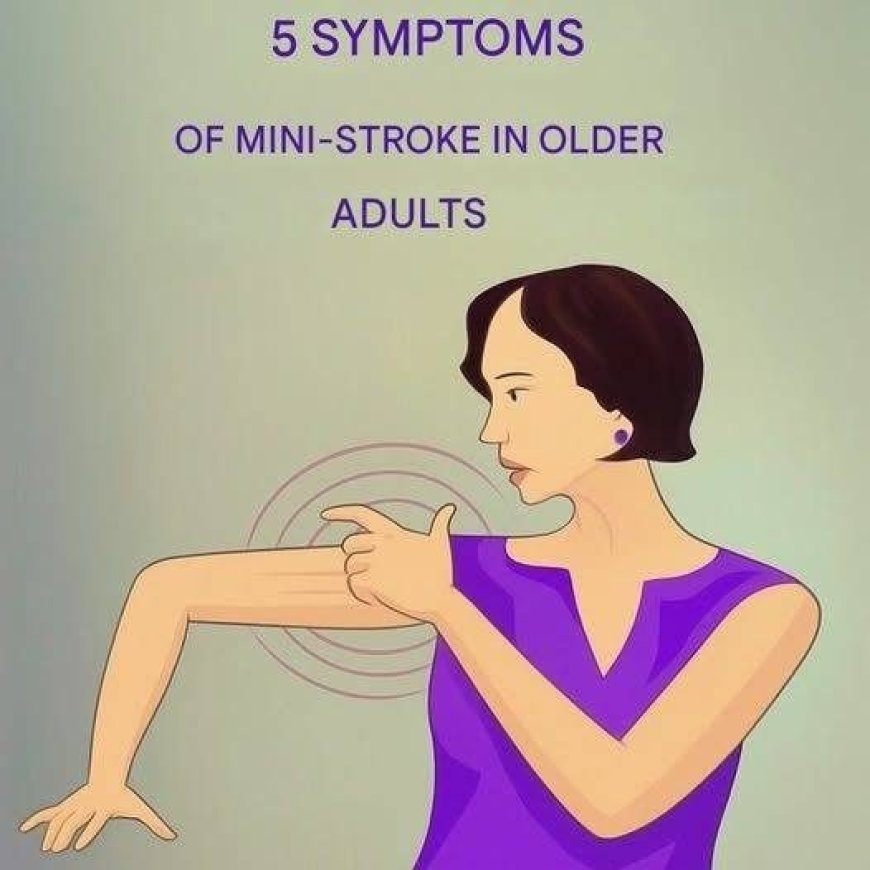5 Symptoms of a Mini Stroke in Seniors That Shouldn’t Be Ignored
Ein Schlaganfall gehört zu den häufigsten und gefährlichsten medizinischen Notfällen, besonders im höheren Alter. Doch nicht jeder Schlaganfall kündigt sich plötzlich und mit voller Wucht an. Oft sendet der Körper schon vorher Warnsignale – sogenannte „Mini-Schlaganfälle“ oder transitorische ischämische Attacken (TIA). Diese kleinen, vorübergehenden Durchblutungsstörungen im Gehirn verursachen Symptome, die meist nur wenige Minuten oder Stunden andauern.
1.
Gerade bei älteren Menschen treten diese Symptome häufig auf, werden jedoch fälschlicherweise als Alterserscheinung oder harmlose Beschwerden abgetan. Das ist gefährlich, denn ein rechtzeitiges Erkennen und Handeln kann Leben retten. Wer die Anzeichen früh erkennt und sofort ärztliche Hilfe sucht, kann schwere Folgeschäden verhindern.
In diesem Artikel stellen wir fünf typische Symptome eines Mini-Schlaganfalls bei Senioren vor, die man unbedingt ernst nehmen sollte. Sie sind die stille Sprache des Körpers, der um Hilfe ruft – und wer sie versteht, hat die Chance, Schlimmeres zu verhindern.
5 Symptoms of a Mini Stroke in Seniors That Shouldn’t Be Ignored
Strokes, also known as strokes, are critical medical emergencies that can affect anyone, although they are more common in the older population. In this age group, a mini-stroke, also called a transient ischemic attack (TIA), often presents with symptoms that are temporary, but should not be ignored. Catching these signs early can be crucial to a person’s long-term health. Here are five key symptoms that may indicate a mini-stroke in older people.
1. Sudden Loss of Strength or Sensation in a Part of the Body
One of the most common symptoms of a mini-stroke is a sudden loss of strength or sensation on one side of the body. This can manifest as weakness in one leg, arm, or even face. The person may notice that they cannot lift an arm or that their smile seems asymmetrical. This kind of weakness is temporary, but it’s a clear sign that something is going on. It is critical for caregivers and family members to be aware of these changes and seek immediate medical attention.
2. Difficulty Speaking or Understanding Language
Slurred speech is another notable symptom of a mini-stroke. Older people may manifest inconsistencies in their speech, confusing words, or may even remain silent when trying to respond. In addition, they may have trouble understanding what other people are saying. This is because temporary brain damage affects the areas responsible for language. Dysarthria, or difficulty articulating words, may be indicative of a TIA, and should be evaluated by a medical professional.
3. Vision Disturbances
Visual disturbances, which are often overlooked, are another symptom of a mini-stroke. This can include blurred vision, loss of vision in one or both eyes, or double vision. These visual abnormalities can be quick and temporary, but they can alert you to problems with blood flow to the areas of the brain that process visual signals. Seniors should have regular eye exams and be alert to any sudden changes in their vision.
4. Dizziness or Loss of Balance
Dizziness, unsteadiness or loss of balance are symptoms that should not be ignored either. A mini stroke can affect the brain in a way that causes a feeling of vertigo or disorientation. Seniors may feel as if they are about to faint or experience difficulty standing. This relates to the affect of certain areas of the brain that control balance and coordination. If an older person is showing unexpected symptoms of dizziness, it is essential to seek immediate medical attention.
5. Sudden and Severe Headache
Although headache is not always a classic symptom of a mini-stroke, a sudden, severe headache that has no apparent cause may be related to a TIA. This type of headache can be described as the “worst headache of your life” and, although it is more
common in full-blown strokes, it can be indicative of serious problems. This symptom should be taken seriously and should lead the person to seek medical attention immediately.
Recognize and ActIt is crucial that both older people and their caregivers are proactive in identifying these symptoms. Mini strokes are a warning that a full-blown stroke could be T.ap the p.hoto to v.iew the full r.ecipe.



























